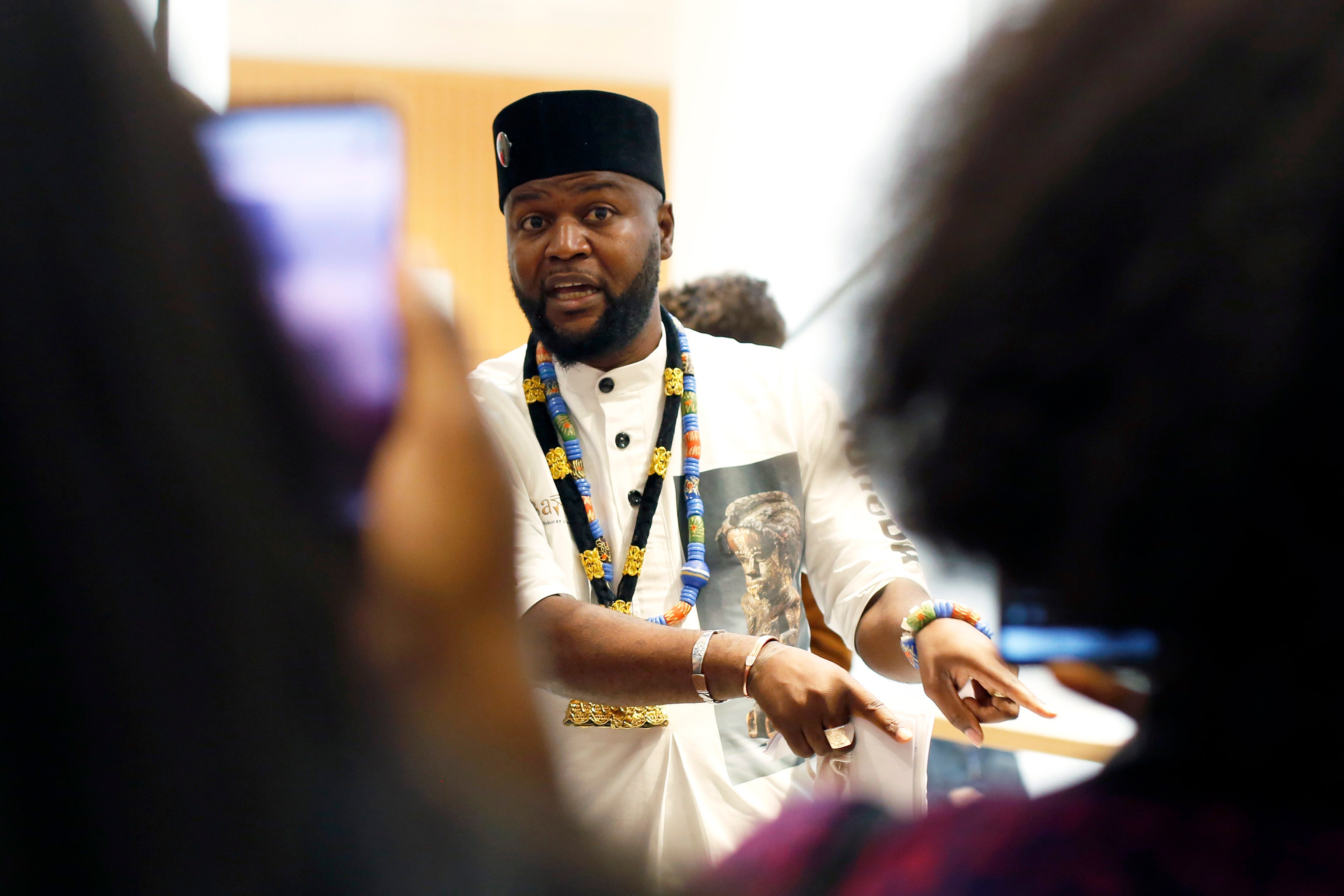Trial in France over artwork seized in anti-colonial protest
A Congolese activist and four others are on trial in Paris on Wednesday on theft charges for trying to remove a 19th century African funeral pole from a Paris museum

Your support helps us to tell the story
From reproductive rights to climate change to Big Tech, The Independent is on the ground when the story is developing. Whether it's investigating the financials of Elon Musk's pro-Trump PAC or producing our latest documentary, 'The A Word', which shines a light on the American women fighting for reproductive rights, we know how important it is to parse out the facts from the messaging.
At such a critical moment in US history, we need reporters on the ground. Your donation allows us to keep sending journalists to speak to both sides of the story.
The Independent is trusted by Americans across the entire political spectrum. And unlike many other quality news outlets, we choose not to lock Americans out of our reporting and analysis with paywalls. We believe quality journalism should be available to everyone, paid for by those who can afford it.
Your support makes all the difference.A Congolese activist and four others are going on trial Wednesday on theft charges for trying to remove a 19th-century African funeral pole from a Paris museum, as part of campaign of protests against colonial-era plundering.
Emery Mwazulu Diyabanza has staged similar actions in museums in the Netherlands and the southern French city of Marseille in recent months, inspired by global protests against racial injustice and colonial-era wrongs unleashed by George Floyd’s death in the U.S. in May at the knee of a white policeman.
In the Paris case, Diyabanza and the other activists stand charged Wednesday of attempted group theft of a historical object, and if convicted, could face up to 10 years in prison and a 150,000 euro fine ($173,000), according to his lawyer.
Arriving defiant at the courthouse, Diyabanza said it's about time that Africans, Latin Americans and other colonized communities take back what was taken from their lands under colonialism.
The charges stem from a June incident that Diyabanza streamed on Facebook, in which he dislodged the funeral pole from the Quai Branly Museum saying it should be returned to Africa. The pole came from a region that crosses current-day Chad and Sudan.
Museum guards stopped them and police detained the activists. In the video, Diyabanza - born in then-Zaire, once ruled by Belgium — lists works held in the Quai Branly museum in Paris that came from former colonies in Africa. He accuses European museums of making millions on artworks taken from now-impoverished countries like Congo.
The Quai Branly Museum, on the banks of the Seine River near the Eiffel Tower, was built under former French President Jacques Chirac to showcase non-European art, notably from ex-French colonies.
France’s then-culture minister denounced the incident, as did some historians concerned this kind of action could damage long-running negotiations with the French government to return African art.
A 2018 study commissioned by President Emmanuel Macron recommended that French museums give back works that were taken without consent, if African countries request them. So far, France is preparing to give back 26 works of African art, out of some 90,000 works believed held in French museums.
___
Follow all AP stories on racial injustice at https://apnews.com/Racialinjustice.